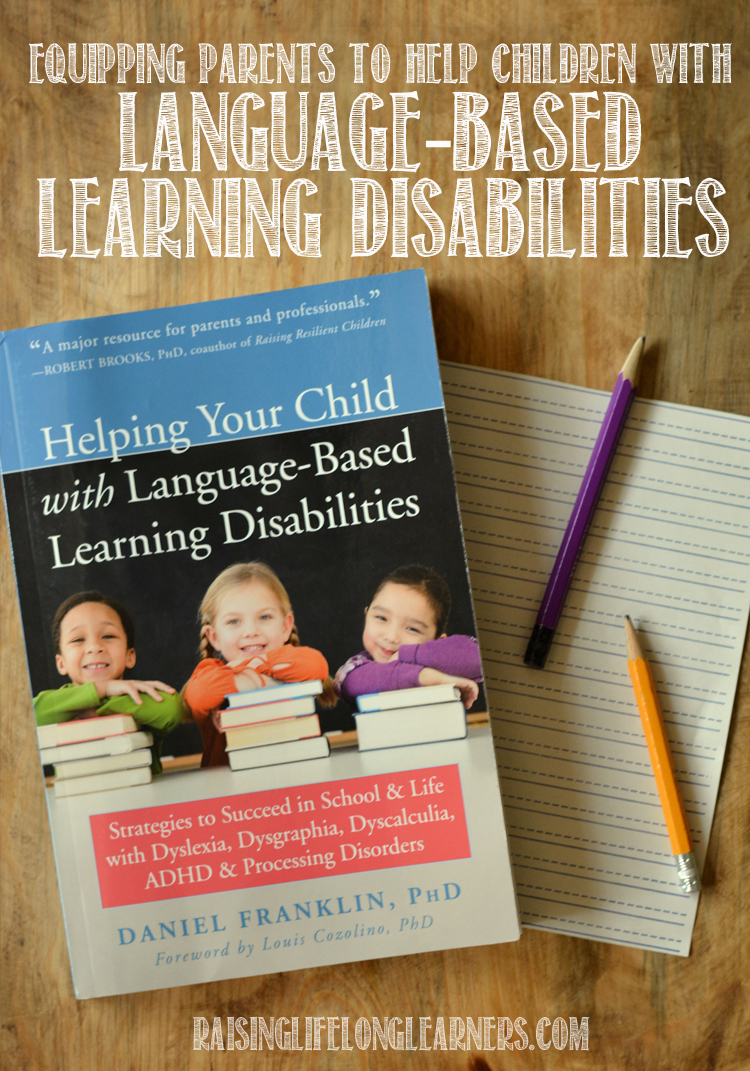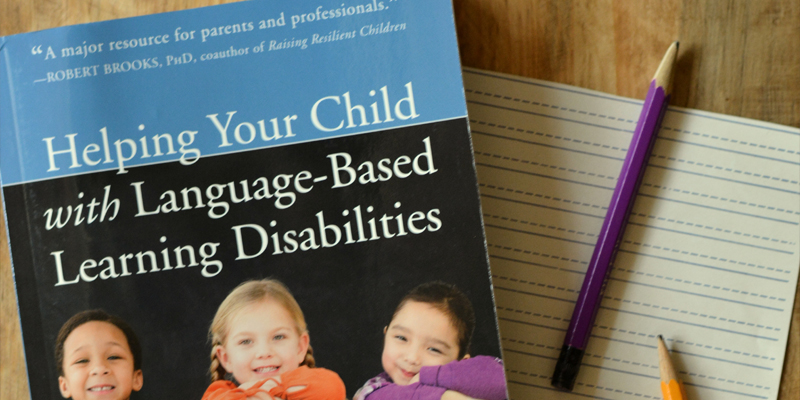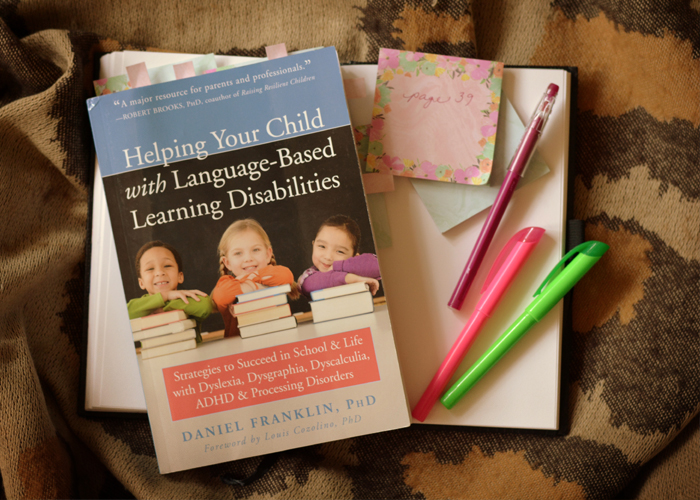Equipping Parents to Help Children with Language-Based Learning Disabilities
Before I began this journey of advocating for my differently-wired kids, I used to think that “learning disabilities” meant dyslexia. Just dyslexia. It was the only disorder I’d ever heard mentioned in a classroom, and my knowledge of it was severely limited to a broad, stereotyped version of a very complex, neurological condition. The more I spoke with other parents, the more I learned about brain differences, the deeper I went into researching my own children’s differences, the more I stumbled upon diagnoses I never knew existed: dysgraphia, dyscalculia, executive function disorders.

With each parent I met who was struggling to make sense of their child’s new label, the more I learned how these disorders profoundly affect a child’s ability to learn. I could not have been more in need of understanding and equipping tools when I read Helping Your Child with Language-Based Learning Disabilities: Strategies to Succeed in School & Life with Dyslexia, Dysgraphia, Dyscalculia, ADHD & Processing Disorders by Daniel Franklin, PhD.
My own journey into language-based learning disabilities began a few years back, when one of my children went through rigorous intelligence and achievement testing with his school district.
“It looks like he’s showing signs of dysgraphia,” the administrator said, “but he’s so smart that he’ll figure it out on his own.”
Apart from my anger at hearing the dismissal of an apparent struggle due to his high IQ, I felt jolted – what was dysgraphia? The school district had no plans in place or professionals on hand that would be able to offer any support, so it was up to me and Google to figure out just what was going on… and just if I could help him in any way.
This scenario isn’t new. Parents discover their child has one of several language-based learning disabilities and are left reeling, wondering, searching… and oftentimes unsupported. Whether in a traditional school setting or a homeschool co-op, language-based learning disabilities will affect a child’s ability to learn… and will eventually affect their self-esteem.
Dr. Franklin wrote Helping Your Child with Language-Based Learning Disabilities from his own unique perspective – someone who grew up with his own LBLD and wished someone had given him the support he now offers through his book and Franklin Educational Services Company. Throughout the book he peppers in his experiences in helping students work through their LBLDs, as well as his own feelings, struggles, and triumphs, and repeatedly emphasizes the importance of relationship between parents and children, rather than focusing solely on exercise and worksheets.
There are large portions of the book devoted to advocating for a child with learning-based language difficulties in the public school system, as well as explanations and step-by-step instructions for how to progress through the levels of intervention a school district offers. This information is also enormously helpful for homeschoolers who may feel unsupported in their attempts to educate their child with a learning disability, either by equipping them with information to advocate at a co-op or to approach a possible umbrella school for support. No matter the educational setting you find yourself in, this book will prove to be enormously helpful and full of practical resources.
Because relationship is emphasized above all else, any parent can benefit from the techniques no matter their child’s educational setting. Homeschoolers will love the focus on the value of play and those using traditional schools will appreciate the practical explanations of an IEP versus a 504.
The real meat of the book includes in-depth explanations and examples that offer insight and understanding into just what language-based learning disabilities are and how they affect a child’s learning. There are tips on how to collaborate with your child, how to support them at home and not just in a classroom. What I really appreciated was how older children were addressed in addition to topics like teaching phonics. So often learning disabilities aren’t identified until well past the beginning stages of literacy, yet it seems that much of the information available to parents is for the very young student. Suggestions on supporting teenagers is hard to come by, so Dr. Franklin’s experience and recommendations are enormously helpful. He points out that children with language-based learning disabilities are not only capable of, but in need of still learning high-level content, despite their struggles with a wide skill gap. And all of the parents of twice-exceptional kiddos released a resounding cheer!
Over and over, relationship with your child is accentuated. Dr. Franklin stresses that we cannot guide our children towards independence – be it in an educational skill or in life – without first providing support. He offers several practical steps and suggestions for helping a child with the mechanics of their LBLD, but he also describes and prescribes a lifestyle change, a shift towards collaboration and relationship, patience and support, rather than just writing exercises and daily word challenges. His methods regard the whole of a child, their self-worth as much as their writing. He offers up, he repeatedly points out, what he wishes he’d had, and in doing so has been able to help families grow stronger as their students grow more confident.
If you are the parent of a child with LBLDs, or an educator looking to expand on your knowledge and skillset, you will absolutely want to download or grab your own copy of Helping Your Child with Language-Based Learning Disabilities by Daniel Franklin, PhD. You can also check out the many services Franklin Educational Services has to offer, follow Dr. Franklin on Facebook, Twitter, Pinterest, or YouTube, or contact Dr. Franklin yourself.


